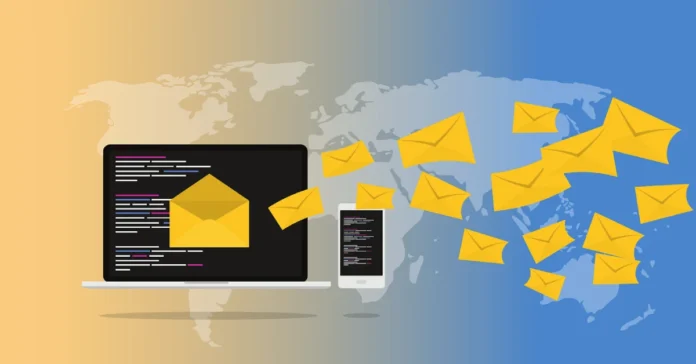Don’t you want to know how to protect your business from business-ending fines?
Today, every business sends thousands of emails a day. But 36% of all data breaches involve phishing attacks per the latest Verizon report. It’s not just spam; it’s non-compliance that is bleeding companies dry.
Here’s the harsh reality:
Compliance failures are not a matter of fines; they are about survival. GDPR fines go up to €20 million or 4% of worldwide turnover. CAN-SPAM Act violations cost you $53,088 per email.
Without the proper email hosting compliance, you’re gambling with the future of your company.
Here’s what you’ll learn:
- Why Email Hosting Compliance Is Critical Right Now
- Understanding the Compliance Landscape
- Key Regulations Every Business Must Comply With
- Choosing Compliant Email Hosting Solutions
- Building Your Compliance Strategy
Why Email Hosting Compliance Is Critical Right Now
Email hosting compliance is no longer optional; it is a matter of survival.
Here’s the reality most businesses don’t see…
The regulatory landscape has changed dramatically. Every email you send must comply with numerous regulations depending on where your recipients are located and what industry you are in.
Think about it. Chances are, your business sends emails to customers in other states and countries. Each of those places has different laws and requirements. Screw up just once, and those fines could destroy smaller companies overnight.
For businesses that take email communication seriously, choosing a reliable email hosting service is critical to maintaining compliance with these new regulations while also keeping your communication channels secure and professional.
But there’s another reason why email hosting compliance matters more than ever…
Cyber threats are on the rise. Business email compromise attacks have increased 30% as of March 2025, with the average cost per incident hitting $4.89 million.
Your email hosting solution must protect you from these threats and keep you compliant. It’s a double challenge that needs the right approach.
Understanding the Compliance Landscape
Email hosting compliance isn’t just about anti-spam laws. There are many layers of regulations.
You’re talking about a web of rules that includes:
- Data protection laws like GDPR, CCPA, and even the soon-to-come CPRA
- Industry-specific regulations, such as HIPAA for healthcare, or financial services requirements like PSD2 and PCI DSS
- Anti-spam legislation, including the CAN-SPAM Act and CASL
- Financial regulations for banks, credit unions, or payment processors
- State and international regulations like the California Consumer Privacy Act (CCPA) and the new Virginia Consumer Data Protection Act (CDPA)
…And here’s the kicker…
These regulations are changing constantly. 70% of corporate compliance professionals report their organizations are shifting from the “check-the-box” to a strategic compliance mindset. You cannot set and forget email hosting compliance.
Each regulation also has a long list of different requirements, including:
- Data encryption and security standards
- Consent mechanisms and opt-outs
- Data retention and deletion requirements
- Audit trails and monitoring
Don’t let the complexity scare you. The basics are enough to start making better decisions about your email hosting.
Key Regulations Every Business Must Comply With
Let’s break down some of the key regulations that will destroy your business if you ignore them.
GDPR (General Data Protection Regulation)
You know how everyone in Europe suddenly became so concerned about data privacy in 2018? GDPR is to blame. But the European privacy watchdogs aren’t going anywhere.
If you email anyone in the EU, GDPR affects you too. It is as simple as that.
GDPR requires opt-in consent before sending marketing emails. The regulation demands clear opt-in mechanisms, easy unsubscribe options, and full records of consent. 20% of compliance staff changed email providers in a GDPR compliance move.
The fines for noncompliance are in the millions of euros. This article is about email hosting, not building your email list. But GDPR compliance is a concern if you have EU subscribers on your list.
CAN-SPAM Act
The CAN-SPAM Act has been around for a while. It’s a set of rules every US business must know and follow.
Every commercial email must:
- Have accurate sender information
- Contain clear subject lines (nothing misleading)
- Be obviously labeled as advertisements
- Have a valid physical address
- Contain a working unsubscribe link that anyone can access
Violate these rules, and you’re hit with $53,088 per email in fines. Every email. Violation isn’t just sending one non-compliant email. It’s sending a single batch of non-compliant emails.
HIPAA Compliance
HIPAA (Health Insurance Portability and Accountability Act) is a regulation that affects every email marketing list with health information in it. Here’s the funny part:
Email service providers that most marketers use are not HIPAA-compliant by default. You need specialized solutions.
Emails with Protected Health Information (PHI) under HIPAA must include:
- End-to-end encryption
- Access controls and audit trails
- Business Associate Agreements (BAAs)
- Multi-factor authentication
- Secure data transmission protocols
HIPAA also has some additional record-keeping requirements regarding access, transmission, and deletion of patient information.
State-Level Regulations
California’s CCPA and CPRA are just the start. Virginia’s CDPA and Colorado’s Privacy Act have joined the fray.
Now you have to deal with a patchwork of state requirements.
These regulations include different rules for:
- Consumer data rights and access
- Opt-out and data deletion mechanisms
- Data processing and sharing restrictions
- Breach notification timelines and consumer protections
How to Choose Compliant Email Hosting Solutions
The wrong email hosting provider could cost you millions.
Here’s what you need to know:
Security Features
Your email hosting must offer:
- End-to-end encryption for all data
- Advanced threat protection against phishing, malware, and BEC
- Multi-factor authentication requirements for access
- Regular security audits and certifications
Compliance Certifications
Look for providers with:
- SOC 2 Type II
- ISO 27001
- GDPR compliance evidence
- HIPAA compliance, if necessary
Data Management Capabilities
Your provider should also offer:
- Granular data retention policies
- Automated data deletion tools
- Comprehensive audit trails
- Data residency controls
Monitoring and Reporting
Must-have features include:
- Real-time compliance monitoring
- Automated compliance reporting
- Suspicious activity detection and alerts
- Regular compliance assessments
Do not trust marketing claims. Demand to see documentation and proof of capabilities.
Building Your Compliance Strategy
Choosing the right email hosting provider is just the beginning.
You also need a comprehensive strategy:
Start with a Compliance Audit
Know where you stand:
- Assess current email practices
- List applicable regulations
- Map consent and opt-out procedures
- Identify data storage locations
- Review current security measures
Develop Clear Policies
Document procedures for:
- Email consent management
- Data retention and deletion
- Security incident response
- Employee training and awareness
Implement Technical Controls
Beyond the hosting provider, you need:
- Email authentication protocols (SPF, DKIM, DMARC)
- Content filtering and monitoring
- Employee phishing awareness training
- Regular security awareness testing
Monitor and Maintain
Compliance is not a one-time setup. Establish processes for:
- Regular compliance checks and audits
- Policy updates as regulations evolve
- Ongoing employee training refreshers
- Continuous monitoring and improvement
Remember, 68% of data breaches involve human elements. Technology alone is not enough — your people need proper training, too.
The Real Cost of Non-Compliance
You still think compliance is optional, don’t you?
Here are some real-world consequences:
- Financial penalties reaching into the millions of dollars
- Reputational damage that chases customers away
- Legal costs defending violations and conducting audits
- Business disruption from enforcement investigations
The average cost of a phishing-related breach in 2024 was $4.88 million. Regulatory fines on top of that, and you’re looking at company-ending costs.
But here’s the good news…
Proper email hosting compliance actually gives you a competitive advantage:
- Enhanced customer trust and loyalty
- Improved security posture
- Streamlined operations
- Better data management
Ready to Win the Compliance Game?
Email hosting compliance is only going to get more challenging. New regulations are coming, enforcement is ramping up, and penalties are growing.
The businesses that survive and thrive are the ones that treat compliance as a strategic advantage, not a cost center.
By choosing the right email hosting solution and building robust processes, you protect your business and set yourself up for growth in a regulated world.
Don’t wait for a compliance disaster to happen. Take action today and turn compliance from a liability into a competitive advantage.



